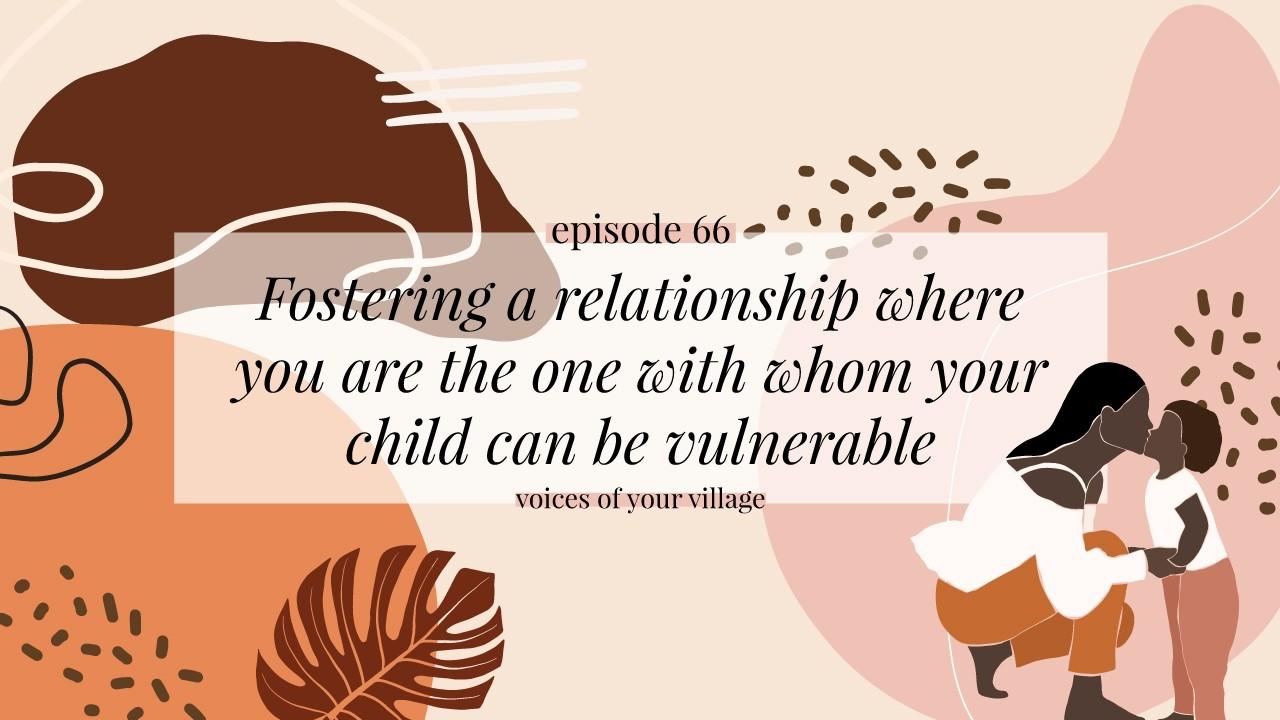Fostering a relationship where you are the one your child can be vulnerable with

Your children are not responsible for your feelings.
Say it louder for the folks in the back!
This week I dive into why it’s so important that our tiny humans never feel responsible for how we feel. If we want to be that person our child can turn to when they experience life’s challenges, we need to be sure they aren’t afraid they will spike our anxiety or make us feel sad with their problems. When we say things like, “It makes me happy when you clean up your toys, or “It makes me sad when you hit me,” we are placing our feelings on our children, and so years down the road, we are not the human they turn to. It’s so hard to break the habit of saying phrases like these, but it’s so, so important.
Brene Brown’s research shows us that every human needs at least one person who they can break down to - whose feelings they don’t feel responsible for, and who they can be totally vulnerable with. If we want to be that person for our kiddo, they can’t feel responsible for our feelings.
It’s okay for us to have feelings, but it’s not okay to place the responsibility of our feelings on the tiny humans.
So how do we do this? How do we avoid putting the responsibility of our feelings on the tiny humans, but hold them accountable for their actions? What if they do actually make us sad? It’s so important that as a parent you are practicing self care and not allowing yourself to get to the end of your rope where every little thing they say or do (or don’t do) results in a big emotion on your part. When you are at your best, the tiny human’s tantrum or hurtful phrases aren’t going to hit you in the soul the same way. Being able to see the behavior for what it is and separate the behavior from the emotion is so important. If you’ve taken care of yourself and you feel confident in yourself as a parent, when they say something rude to you, it doesn’t feel like they’ve tapped into one of your insecurities, and it gives you the tools needed to avoid putting the responsibility of your feelings on your kiddo.
I think being triggered by something our kiddos say happens a lot in parenthood. If we take care of ourselves, we are more likely to respond with intention, rather than react in the moment. And when we want them to take responsibility for their actions, what we’re really talking about is empathy, and I believe we don’t build empathy between us and them if we want to be the person they can break down to, but instead between peer to peer or everybody else but us.
We can find teachable moments throughout our days - when we witness someone experiencing a big emotion we can ask questions like “What do you think he’s feeling?
Another way is to point to a face in a book and identify which emotion that person might be feeling. This lets kiddos know that other people have feelings.
So what do we say instead? Instead of saying things like, “It makes me sad when you hit me,” we can try, “I won’t let you hit me.” Instead of saying, “It makes me happy that you cleaned up your toys,” you might say, “You cleaned up all your toys! Now you have time to watch a show before we leave!”
Instead of focusing on the behavior, teach kids what else to do with that emotion.
Kiddos don’t always know how to communicate what they’re feeling in the right way and they just need the right tools. They may have the tools in the calm moments and are unable to access them when they’re feeling a hard emotion. It’s our job to help them find their calm before problem-solving or navigating conflict resolution. You can also still set and hold boundaries while emotion coaching for emotion processing. I discuss a few examples in this episode, but if you need a refresher on emotion coaching, head on over to Episode 63 where we dive deep into this.
I feel very fortunate that as an adult, my mom is that person who I can break down to because I know I’m not responsible for her feelings.
I know a lot of folks who aren’t telling their parents things because their parents don’t have the tools to process hard emotions and they are in fear of spiking their anxiety or making them feel sad. Since anxiety is higher than ever in parenthood and in our tiny humans, it’s more important now than ever to start building a toolbox to process your own anxiety to show them we have coping strategies to process the hard emotions so we can be that person for them.
If you need help with parenting with anxiety or responding to children who are struggling with anxiety and want to dive deeper into this, you can sign up for our Tiny Humans, Big Emotions Membership for more guidance.
